Rorty and final vocabularies
Download as PPTX, PDF2 likes1,908 views
The document discusses concepts from philosophers like Foucault, Rorty, and Watts regarding critically examining assumptions and values about schools. It emphasizes developing an "ironic sensibility" by problematizing one's perspectives and engaging in open-minded conversation over establishing certainties. Rorty believes communities should define themselves through a shared curriculum to facilitate common conversations, rather than relying solely on individual preferences or external authorities. The document poses questions about how taking these ideas seriously could impact schooling practices and approaches to knowledge.
1 of 17
Downloaded 31 times
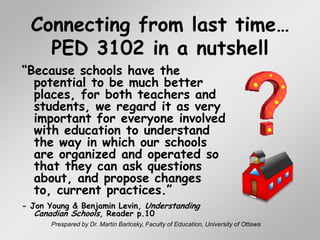
![Prespared by Dr. Martin Barlosky, Faculty of Education, University of OttawaFocaultŌĆÖs Epistemological ConundrumŌĆ£People know what they do; they frequently know why they do what they do; but what they donŌĆÖt know is what they do [their doing] does.ŌĆØ-Michel Foucault, Beyond Structuralism and Hermeneutics, Dreyfus & Rabinow (Eds.), p. 187](https://image.slidesharecdn.com/rortyandfinalvocabularies-101014192200-phpapp02/85/Rorty-and-final-vocabularies-2-320.jpg)

![Prepared by Dr. Martin Barlosky, Faculty of Education, University of OttawaCulture and Final VocabulariesŌĆ£[A]ll vocabularies, even those which contain the words which we take most seriously, the ones most essential to our self-descriptions ŌĆō are human creations, tools for the creation of such other human artifacts as poems, utopian societies, scientific theories, and future generations.ŌĆØ-Richard Rorty, Contingency, irony, and solidarity, p. 53](https://image.slidesharecdn.com/rortyandfinalvocabularies-101014192200-phpapp02/85/Rorty-and-final-vocabularies-4-320.jpg)






![Irony and AgencyŌĆ£[T]he fact that Newton's vocabulary lets us predict the world more easily than Aristotle's does not mean that the world speaks Newtonian. The world does not speak. Only we do.ŌĆØ-Richard Rorty, Contingency, irony, and solidarity, p. 6Prepared by Dr. Martin Barlosky, Faculty of Education, University of Ottawa](https://image.slidesharecdn.com/rortyandfinalvocabularies-101014192200-phpapp02/85/Rorty-and-final-vocabularies-11-320.jpg)



![Knowledge and Community(neither narcissism nor subjugation)ŌĆ£[T]here is a middle way between reliance on a God-surrogate and on oneŌĆÖs individual preferences ŌĆō namely, reliance on the common sense of the community to which one belongs.ŌĆØ-Richard Rorty, ŌĆ£Hermeneutics, General Studies, and Teaching,ŌĆØ p. 527Prepared by Dr. Martin Barlosky, Faculty of Education, University of Ottawa](https://image.slidesharecdn.com/rortyandfinalvocabularies-101014192200-phpapp02/85/Rorty-and-final-vocabularies-15-320.jpg)
![ŌĆ£[It] does not greatly matter what the core curriculum is as long as there is one ŌĆō as long as each community defines itself by adopting oneŌĆ”What matters is that there be some things they all have read and can do, some common subject of conversationŌĆ”To pick a core curriculum is, therefore, to pick a community ŌĆō or, better, to decide what sort of community one would like to see come into being.ŌĆØ-Rorty, ŌĆ£Hermeneutics, General Studies, and Teaching,ŌĆØ pp. 527 & 532-3Prepared by Dr. Martin Barlosky, Faculty of Education, University of Ottawa](https://image.slidesharecdn.com/rortyandfinalvocabularies-101014192200-phpapp02/85/Rorty-and-final-vocabularies-16-320.jpg)

Recommended
Constructivism and positivism research methodology



Constructivism and positivism research methodologyAlilo Boss
╠²
Constructivism is a research philosophy that views reality as constructed by human intelligence and experience rather than existing objectively. It holds that knowledge is constructed by scientists through interaction with the world rather than discovered through a single scientific method. Constructivism is mainly used as a teaching philosophy based on the idea that student understanding is formed through reflection on personal experiences and relating new information to prior knowledge.TUL 670-2 Theoretical Underpinnings of Urban Research



TUL 670-2 Theoretical Underpinnings of Urban ResearchUrban Leadership Foundation
╠²
Implications of Ontology and Epistemology on Philosophies of research and hence on Urban Research Design Processes.Openness as a ŌĆśworldviewŌĆÖ or as a ŌĆśway of beingŌĆÖ



Openness as a ŌĆśworldviewŌĆÖ or as a ŌĆśway of beingŌĆÖGlobal OER Graduate Network
╠²
The document summarizes Helen Crump's presentation on conceptualizing the self as an open educational resource. It discusses openness as a way of being and doing, and how a sociomaterial literacies perspective frames textual production as emerging from assemblages of humans, texts, technologies and other materials. It also examines subjectivity and discourse, and how Baradian agential realism views phenomena as ontologically inseparable relations. The emerging themes around open practice are discussed, as well as what it means to be an open researcher.Ins and outs of transdisciplinary research



Ins and outs of transdisciplinary researchMartin Rieser
╠²
Andrew Hugill's talk on Transdisciplinarity and research for the Transdisciplinary DC at De Montfort UniversityParadigms And Theories



Paradigms And TheoriesArun Jacob
╠²
1. Paradigms are fundamental models or frames of reference that shape how we organize observations and reasoning. They lie behind theories and influence ways of looking at things. Examples include Marxism and structural functionalism.
2. Theories are systematic sets of statements that aim to explain aspects of social life through identifying relationships between facts, concepts, and variables, and developing testable explanations for patterns.
3. Methodologies establish whether theories accurately represent reality in a way respected by most, and vary from highly quantitative to highly qualitative approaches and often combine methods.Ciao professore preview



Ciao professore previewbarlosky
╠²
This document provides an overview and discussion questions for the film "Ciao, Professore!" for a university course on schooling and society. It discusses themes in the film related to gender, race, class, the role of teachers, and the relationship between individuals and their environments. Students are prompted to consider how the main character Professore Sperelli's attributes and experiences shape his work and relationships at school, and whether he or his student Corzano have a greater influence on each other's education. More information on the film can be found at an internet movie database link provided.Enc 1102 tuesday september 4th



Enc 1102 tuesday september 4thLaura Martinez
╠²
This genre analyzes articles related to legal studies on the topic of hazing. The articles address how hazing is defined differently but is generally wrong. They call for stricter penalties on administrators who do not prevent hazing and for improved hazing prevention programs. The authors of these articles are law professors and attorneys writing to educate those in the legal community on the issues surrounding hazing and how to address them. The articles include facts, definitions of hazing, and recommendations to establish credibility and fully define the topic for the intended legal audience.Introduction to Communication Theory



Introduction to Communication TheoryDr. Aitza Haddad Nu├▒ez
╠²
Overview: Chapters 1 to 4 of "A First Look at Communication Theory," 9th Edition by Griffin, Ledbetter & SparksSources of my IdentityIntroduction My personal identity deal.docx



Sources of my IdentityIntroduction My personal identity deal.docxrafbolet0
╠²
Sources of my Identity
Introduction
My personal identity deals with the philosophical questions that arise about humans by the virtue of being individuals or people. However, this argument contrasts with any questions that entail the virtues of human beings as conscious beings or material objects. Many people will seek to understand their identity by asking the questions of what am I? When did I come to being? What will happen when I die? It is such questions that probe possible other questions that seek to have several answers regarding the indemnity of an individual. The sources of identity will mostly differ differently from one person to another, as they are influenced by a wide range of external factors throughout oneŌĆÖs period of growth(Payne 17).
Human beings have an unchanging need for uniqueness, and quite often, the search for this happens through the use of meaning and symbolism with the help of products and brands such as surroundings, time, and exposure to other variables. The mentioned meanings and symbolisms are at times not necessary as the brands of products, and wares may be inherent making one person to be completely different from the other in terms of behavior, thinking, or reasoning. This augment concedes with that of McCrae and Costa, which suggests that oneŌĆÖs cultural meanings take part in making up for oneŌĆÖs identity, which is the personality (Payne 17). Culture anticipates for use of symbols for identity working outwardly to construct the social world and inwardly to construct self-identity. In this way, personal identity plays a vital role when it comes to dictating oneŌĆÖs inner and outer circumstances. Every human is different from the others as anticipated his or her personality. This can be justified by the way people communicate socially.
The study of the psychology of personal identity has existed as organized entity since 1940s. There have been two major theories of human personality; one was dispositional or trait theory and the other one is person-situational theory. The trait theory did account for the centralist approach and internal constructs with governed behavior in a given or a particular situation derived mainly from internal characteristics of personality. In the west that is the western world, a laymanŌĆÖs understanding of personality is related tothe trait approach, and this laid its basis or roots from the 19th-century liberalism
The trait theory posted broad stable factors, traits, or behavioral dispositions as its fundamental units. Its primary goal was to characterize individuals in terms of a comprehensive nevertheless, preferably and finite small set of stable dispositions that have always remained invariant across situations and that were distinctive for a person determining a wide range of important behavior. In the recent years, the trait theory has been personified in the big five-model of human personality. This model reduced the large numbers of adjectives that described personal ident.From A Dissertation To A Book slidedeck



From A Dissertation To A Book slidedeckAvon Hart-Johnson, PhD
╠²
In this presentation, Dr. Avon Hart-Johnson presents strategies and considerations on how to transform a dissertation to a book. Presented 12/29/17 at National Harbor, Walden PhD Residency Lit204 lecture-1-wk-one(2010)



Lit204 lecture-1-wk-one(2010)brendanstone
╠²
The document provides an overview of the course Lit 204: Criticism & Literary Theory. It lists core texts for the course and assessment requirements. It also discusses the concept of "common sense" and how it is an unreliable and ill-defined term. Theory challenges common sense by questioning naturalized assumptions and exploring how meanings are socially constructed.Feminist Pedagogies



Feminist PedagogiesCentral Connecticut State University
╠²
This document discusses feminist pedagogies and critiques of education from a feminist perspective. It covers the history of feminism in waves from the late 1800s to present day. It also discusses how knowledge and reality are socially constructed, emphasizing standpoint theory and intersectionality. The document proposes cooperative learning practices that incorporate student voice and care. It contrasts Western and indigenous views of the Earth and different ways of knowing.Schools as moral organizations



Schools as moral organizationsbarlosky
╠²
The document discusses how teaching and schooling are inherently moral enterprises. It argues that education is a moral claim that shapes students, and that teachers must demonstrate care, integrity, respect and trust. However, ensuring schools fulfill their moral purpose can be challenging, as school structures and policies do not always align with moral goals and may reproduce social inequities.Surname 2NameInstructorŌĆÖs NameClass informationJune 5, .docx



Surname 2NameInstructorŌĆÖs NameClass informationJune 5, .docxmattinsonjanel
╠²
The document is a first-person account of a student's experience studying in America. The student had idealized visions of America from stories shared by classmates, but found reality to be more complex upon living there. While appreciating the educational opportunities, the student observed social issues like homelessness that contradicted the imagined "land of plenty" and realized not all Americans have easy lives.Euthyphro Interpretative Essay



Euthyphro Interpretative EssayWhere To Buy Papers Bethlehem
╠²
This document discusses potential interpretive pitfalls when analyzing the Old Testament, according to Andrew E. Hill's book A Survey of the Old Testament. Some key pitfalls mentioned are: not understanding the Bible was originally written in other languages and cultures, not letting the biblical text speak for itself, failing to recognize one's own presuppositions, and ignoring the original author's intended message in favor of how the interpreter wants to use the text. The document focuses on these interpretive challenges and cautions readers to avoid misinterpreting biblical texts.What are the philosophical



What are the philosophicalDr. Paul A. Rodriguez
╠²
The document discusses the philosophical foundations of American education. It outlines four main branches of philosophy - metaphysics, epistemology, axiology, and logic. It then describes four philosophies of education - perennialism, essentialism, romanticism, and progressivism. For each philosophy, it discusses views on the nature of reality, knowledge, values, logic, the purpose of education, the role of the teacher, teaching strategies, curriculum, and the child. It notes that while each philosophy has a distinct approach, eclecticism involves selecting attractive features from different philosophies. Key terms related to philosophy of education are also defined.Peace pedagogies



Peace pedagogiesCentral Connecticut State University
╠²
This document discusses various pedagogies and teaching practices, including ecojustice pedagogy, feminist pedagogy, and queer pedagogy. For ecojustice pedagogy, it describes key points of ecojustice theory, methods for disrupting anthropocentric mindsets, and teaching methods focused on exploring intersections between cultural value systems and ecology. For feminist pedagogy, it outlines classroom practices like invitational rhetoric, empowerment, building community, giving voice, incorporating diverse experiences, and challenging traditional views. For queer pedagogy, it provides examples of lessons that investigate queered relationships, knowledges, and communities.1Introduction╠²The Multicultural PersonBoth the nature of what.docx



1Introduction╠²The Multicultural PersonBoth the nature of what.docxdrennanmicah
╠²
1
Introduction:╠²The Multicultural Person
Both the nature of what we take to be a self and its expression are inherently cultural╠²(Bhatia & Stam, 2005, p. 419).
Each individualŌĆÖs many aspects are not fragmented and distanced from one another or hierarchically ordered on behalf of a ruling center but remain in full interconnectedness and communication╠²(Sampson, 1985, p. 1209).
There are a great variety of categories to which we simultaneously belong ŌĆ” Belonging to each one of the membership groups can be quite important, depending on the particular context ŌĆ” the importance of one identity need not obliterate the importance of others╠²(Sen, 2006, p. 19).
Each of us is a multicultural human being. This simple and basic proposition, most descriptive of those of us who live in contemporary heterogeneous societies, constitutes the basic (though complex) theme of this book. Within its pages the reader will find attempts to explain, illustrate and argue for the value of this assertion. A major stimulus for pursuit of this is the belief that the study and understanding of behavior, when guided by the premise of individual multiculturalism, will increase the authenticity of our knowledge and the reliability of our predictions. This, in turn, should enhance the relevance and efficacy of the applications of our work to significant life situations ŌĆō in the interest of advancing human welfare.
Multicultural Psychology and Cross-Cultural Psychology
This book needs to be distinguished from those that are in the tradition of cross-cultural psychology or mainstream multicultural psychology. The latter, as defined by Mio, Barker-Hackett, and Tumambing (2006, p. 32) ŌĆ£is the systematic study of all aspects of human behavior as it occurs in settings where people of different backgrounds encounter one another.ŌĆØ Multicultural psychologists prefer a salad bowl rather than a melting pot as metaphorical image, viewing the United States, for example, as a society in which groups maintain their distinctiveness (Moodley & Curling, 2006). They stress and argue for the necessary development of multicultural competence by psychologists and others. Such competence includes understanding of your own culture, respect for other cultures, and acquiring appropriate culturally sensitive interpersonal skills. To this end, professional guidelines have been proposed (and adopted) for education, training, and practice. Such guidelines are approved by the American Psychological Association (APA) for practice with persons of color (APA, 2003), practice with sexual minorities (APA, 2000), and practice with girls and women (APA, 2007).
The emphases in cross-cultural psychology are two-fold: first, to understand and appreciate the relationships among cultural factors and human functioning (Wallace, 2006); and second, to compare world cultures as well as subcultures within a single society. Cultures are compared on values, world-views, dominant practices, beliefs, and structures in order to re.The ph d and beyond the apprenticeship model of learning



The ph d and beyond the apprenticeship model of learningOsgoode Professional Development, Osgoode Hall Law School, York University
╠²
║▌║▌▀Żs presented to PhD students at ANU College of Law 27.2.15 in their doctoral seminar series, PhOdysseyfoundation of education by Dr . Tolanath kafle 



foundation of education by Dr . Tolanath kafle Tolanath Kafle
╠²
Óż”Óż░ÓźŹÓżČÓż©ÓżĢÓżŠ ÓżĄÓżŠÓż░ÓźćÓż«ÓżŠ ÓżĖÓżŠÓż©ÓżŠÓźć Óż¬ÓźŹÓż░Óż»ÓżŠÓżĖ Óż©ÓźćÓż¬ÓżŠÓż▓ÓźĆ ÓżŁÓżŠÓżĘÓźĆÓżĢÓżŠÓż▓ÓżŠÓżŚÓż┐ ÓżĢÓźćÓż╣ÓźĆÓż«ÓżŠÓżżÓźŹÓż░ÓżŠÓż«ÓżŠ ÓżēÓż¬Óż»ÓżŠÓźćÓżŚÓźĆ Óż╣ÓźüÓż©ÓźŹÓżø ÓżŁ Óż©ÓźŹÓż░Óźć ÓżģÓż¬ÓźćÓżĢÓźŹÓżĘÓżŠ ÓżĖÓż╣ÓźĆÓżż Óż»ÓźćÓżŠ Óż¬Óż╣Óż┐Óż▓ÓżŠÓźćÓźć Óż¬ÓźŹÓż░Óż»ÓżŠÓżĖThe zeitgeist movement_defined_6_by_9



The zeitgeist movement_defined_6_by_9lovmar01
╠²
This tediously sourced and highly detailed work argues for a large-scale change in human culture, specifically in the context of economic practice. The dominant theme is that the current socioeconomic system governing the world at this time has severe structural flaws, born out of primitive economic and sociological assumptions originating in our early history, where the inherent severity of these flaws went largely unnoticed.Essay On Nature Vs Nurture



Essay On Nature Vs NurtureVanessa Marin
╠²
This document discusses the challenges of writing an essay on the nature vs nurture debate. It notes that the topic delves into fundamental aspects of human development and the interplay between genetics and environment. Navigating the vast amount of literature from different fields can be overwhelming. The essay also requires a nuanced approach that considers different viewpoints and the philosophical implications. It involves balancing scientific evidence and perspectives to present a well-reasoned synthesis. Writing about this debate demands a meticulous approach that combines scientific rigor with philosophical insight.Philosophical group presentation group 1



Philosophical group presentation group 1DaniMorrisWhite
╠²
Socrates believed an educated person is aware of their own limitations and ignorance. He used questioning dialogue to guide students to discover truths for themselves. Plato wrote about Socrates and believed education should guide the gifted to obtain knowledge. Aristotle was a student of Plato and developed his own philosophy. He emphasized building good habits through repetition and studying science to understand the world.Assignment



AssignmentRedPaspas
╠²
1) The document discusses several philosophical theories including linguistic philosophy, constructivism, essentialism, existentialism, perennialism, and behaviorism.
2) It provides descriptions of each theory, explaining their key concepts and methodology. For example, it states that constructivism is a learning theory where people produce knowledge based on experiences.
3) The document also includes sections on the philosophy of language, linguistics, essentialism in gender, and behaviorism's proposition that behavior can be understood without inner mental states. It aims to define and compare different philosophical perspectives.Positionality.pptx



Positionality.pptxsafdarbajwa
╠²
This document summarizes two chapters from different books.
The first chapter discusses the concept of researcher reflexivity and positionalities. It argues that reflexivity includes acknowledging how a researcher's social positioning and textual experiences can influence their work. Positionalities are complex and shifting across different contexts.
The second chapter discusses strategies for establishing "truths" in qualitative research. It advocates moving beyond notions of singular truth to acknowledge multiple, negotiated truths. It proposes strategies like "negotiated honesties" that involve collaborative interpretation, and examining "verisimilitude" through longitudinal engagement to gain deeper understanding of participants' perspectives.Evidence Based Practice Essay



Evidence Based Practice EssayKimberly Powell
╠²
Evidence Based Practice Paper Sample. NUR2300 Evidence-based Nursing Practice Assignment Sample | Evidence .... Stroke: Evidence-Based Practice Essay Example | Topics and Well Written .... Continental philosophy



Continental philosophytjmartin72768
╠²
This document summarizes key differences between analytic and continental philosophy traditions. It then provides an overview and ordering of articles in the collection that discuss ideas from hermeneutics, post-modernism, and critical realism. The document examines debates between thinkers like Rorty, Foucault, Bhaskar, and Harre regarding the nature of truth, power/knowledge, and the relationship between individuals and social structures.Humanities 2007 2008



Humanities 2007 2008fleong
╠²
The document discusses the proposed humanities curriculum for grades 6-8 at Shanghai American School, Pudong. It provides an overview of each grade's curriculum, which is organized into themes and incorporates literature studies, films, and other texts. The curriculum is designed to be interdisciplinary and encourage connections between subjects. It aims to develop students' skills and prepare them for an evolving global workforce through authentic learning experiences.Assignment 2 tough assignment



Assignment 2 tough assignmentbarlosky
╠²
This document contains questions posed by Dr. Martin Barlosky about how to improve Oakwood Collegiate Institute based on various educational theories and perspectives. Some of the key areas discussed include viewing the school through a bureaucratic lens and focusing on effectiveness, efficiency and control; identifying tightly and loosely coupled elements that could be altered; considering how talk is used and how it could be improved; examining which of Gatto's seven lessons are being taught and how to replace them; analyzing how the six functions of schools identified by Holmes are realized and their consequences; addressing differences between rhetoric and practice described by Metz; and strengthening connections through administrative action.Talk as the work



Talk as the workbarlosky
╠²
The document discusses how talk and language are an essential but overlooked part of school administration work. It notes that administrators spend between two thirds and three quarters of their time in talk-based interactions, and that administrative control is accomplished through engaging others in "language games". The use of words allows for the development of shared meanings between administrators and school personnel, and helps create coherence and tight coupling within the school organization.More Related Content
Similar to Rorty and final vocabularies (20)
Sources of my IdentityIntroduction My personal identity deal.docx



Sources of my IdentityIntroduction My personal identity deal.docxrafbolet0
╠²
Sources of my Identity
Introduction
My personal identity deals with the philosophical questions that arise about humans by the virtue of being individuals or people. However, this argument contrasts with any questions that entail the virtues of human beings as conscious beings or material objects. Many people will seek to understand their identity by asking the questions of what am I? When did I come to being? What will happen when I die? It is such questions that probe possible other questions that seek to have several answers regarding the indemnity of an individual. The sources of identity will mostly differ differently from one person to another, as they are influenced by a wide range of external factors throughout oneŌĆÖs period of growth(Payne 17).
Human beings have an unchanging need for uniqueness, and quite often, the search for this happens through the use of meaning and symbolism with the help of products and brands such as surroundings, time, and exposure to other variables. The mentioned meanings and symbolisms are at times not necessary as the brands of products, and wares may be inherent making one person to be completely different from the other in terms of behavior, thinking, or reasoning. This augment concedes with that of McCrae and Costa, which suggests that oneŌĆÖs cultural meanings take part in making up for oneŌĆÖs identity, which is the personality (Payne 17). Culture anticipates for use of symbols for identity working outwardly to construct the social world and inwardly to construct self-identity. In this way, personal identity plays a vital role when it comes to dictating oneŌĆÖs inner and outer circumstances. Every human is different from the others as anticipated his or her personality. This can be justified by the way people communicate socially.
The study of the psychology of personal identity has existed as organized entity since 1940s. There have been two major theories of human personality; one was dispositional or trait theory and the other one is person-situational theory. The trait theory did account for the centralist approach and internal constructs with governed behavior in a given or a particular situation derived mainly from internal characteristics of personality. In the west that is the western world, a laymanŌĆÖs understanding of personality is related tothe trait approach, and this laid its basis or roots from the 19th-century liberalism
The trait theory posted broad stable factors, traits, or behavioral dispositions as its fundamental units. Its primary goal was to characterize individuals in terms of a comprehensive nevertheless, preferably and finite small set of stable dispositions that have always remained invariant across situations and that were distinctive for a person determining a wide range of important behavior. In the recent years, the trait theory has been personified in the big five-model of human personality. This model reduced the large numbers of adjectives that described personal ident.From A Dissertation To A Book slidedeck



From A Dissertation To A Book slidedeckAvon Hart-Johnson, PhD
╠²
In this presentation, Dr. Avon Hart-Johnson presents strategies and considerations on how to transform a dissertation to a book. Presented 12/29/17 at National Harbor, Walden PhD Residency Lit204 lecture-1-wk-one(2010)



Lit204 lecture-1-wk-one(2010)brendanstone
╠²
The document provides an overview of the course Lit 204: Criticism & Literary Theory. It lists core texts for the course and assessment requirements. It also discusses the concept of "common sense" and how it is an unreliable and ill-defined term. Theory challenges common sense by questioning naturalized assumptions and exploring how meanings are socially constructed.Feminist Pedagogies



Feminist PedagogiesCentral Connecticut State University
╠²
This document discusses feminist pedagogies and critiques of education from a feminist perspective. It covers the history of feminism in waves from the late 1800s to present day. It also discusses how knowledge and reality are socially constructed, emphasizing standpoint theory and intersectionality. The document proposes cooperative learning practices that incorporate student voice and care. It contrasts Western and indigenous views of the Earth and different ways of knowing.Schools as moral organizations



Schools as moral organizationsbarlosky
╠²
The document discusses how teaching and schooling are inherently moral enterprises. It argues that education is a moral claim that shapes students, and that teachers must demonstrate care, integrity, respect and trust. However, ensuring schools fulfill their moral purpose can be challenging, as school structures and policies do not always align with moral goals and may reproduce social inequities.Surname 2NameInstructorŌĆÖs NameClass informationJune 5, .docx



Surname 2NameInstructorŌĆÖs NameClass informationJune 5, .docxmattinsonjanel
╠²
The document is a first-person account of a student's experience studying in America. The student had idealized visions of America from stories shared by classmates, but found reality to be more complex upon living there. While appreciating the educational opportunities, the student observed social issues like homelessness that contradicted the imagined "land of plenty" and realized not all Americans have easy lives.Euthyphro Interpretative Essay



Euthyphro Interpretative EssayWhere To Buy Papers Bethlehem
╠²
This document discusses potential interpretive pitfalls when analyzing the Old Testament, according to Andrew E. Hill's book A Survey of the Old Testament. Some key pitfalls mentioned are: not understanding the Bible was originally written in other languages and cultures, not letting the biblical text speak for itself, failing to recognize one's own presuppositions, and ignoring the original author's intended message in favor of how the interpreter wants to use the text. The document focuses on these interpretive challenges and cautions readers to avoid misinterpreting biblical texts.What are the philosophical



What are the philosophicalDr. Paul A. Rodriguez
╠²
The document discusses the philosophical foundations of American education. It outlines four main branches of philosophy - metaphysics, epistemology, axiology, and logic. It then describes four philosophies of education - perennialism, essentialism, romanticism, and progressivism. For each philosophy, it discusses views on the nature of reality, knowledge, values, logic, the purpose of education, the role of the teacher, teaching strategies, curriculum, and the child. It notes that while each philosophy has a distinct approach, eclecticism involves selecting attractive features from different philosophies. Key terms related to philosophy of education are also defined.Peace pedagogies



Peace pedagogiesCentral Connecticut State University
╠²
This document discusses various pedagogies and teaching practices, including ecojustice pedagogy, feminist pedagogy, and queer pedagogy. For ecojustice pedagogy, it describes key points of ecojustice theory, methods for disrupting anthropocentric mindsets, and teaching methods focused on exploring intersections between cultural value systems and ecology. For feminist pedagogy, it outlines classroom practices like invitational rhetoric, empowerment, building community, giving voice, incorporating diverse experiences, and challenging traditional views. For queer pedagogy, it provides examples of lessons that investigate queered relationships, knowledges, and communities.1Introduction╠²The Multicultural PersonBoth the nature of what.docx



1Introduction╠²The Multicultural PersonBoth the nature of what.docxdrennanmicah
╠²
1
Introduction:╠²The Multicultural Person
Both the nature of what we take to be a self and its expression are inherently cultural╠²(Bhatia & Stam, 2005, p. 419).
Each individualŌĆÖs many aspects are not fragmented and distanced from one another or hierarchically ordered on behalf of a ruling center but remain in full interconnectedness and communication╠²(Sampson, 1985, p. 1209).
There are a great variety of categories to which we simultaneously belong ŌĆ” Belonging to each one of the membership groups can be quite important, depending on the particular context ŌĆ” the importance of one identity need not obliterate the importance of others╠²(Sen, 2006, p. 19).
Each of us is a multicultural human being. This simple and basic proposition, most descriptive of those of us who live in contemporary heterogeneous societies, constitutes the basic (though complex) theme of this book. Within its pages the reader will find attempts to explain, illustrate and argue for the value of this assertion. A major stimulus for pursuit of this is the belief that the study and understanding of behavior, when guided by the premise of individual multiculturalism, will increase the authenticity of our knowledge and the reliability of our predictions. This, in turn, should enhance the relevance and efficacy of the applications of our work to significant life situations ŌĆō in the interest of advancing human welfare.
Multicultural Psychology and Cross-Cultural Psychology
This book needs to be distinguished from those that are in the tradition of cross-cultural psychology or mainstream multicultural psychology. The latter, as defined by Mio, Barker-Hackett, and Tumambing (2006, p. 32) ŌĆ£is the systematic study of all aspects of human behavior as it occurs in settings where people of different backgrounds encounter one another.ŌĆØ Multicultural psychologists prefer a salad bowl rather than a melting pot as metaphorical image, viewing the United States, for example, as a society in which groups maintain their distinctiveness (Moodley & Curling, 2006). They stress and argue for the necessary development of multicultural competence by psychologists and others. Such competence includes understanding of your own culture, respect for other cultures, and acquiring appropriate culturally sensitive interpersonal skills. To this end, professional guidelines have been proposed (and adopted) for education, training, and practice. Such guidelines are approved by the American Psychological Association (APA) for practice with persons of color (APA, 2003), practice with sexual minorities (APA, 2000), and practice with girls and women (APA, 2007).
The emphases in cross-cultural psychology are two-fold: first, to understand and appreciate the relationships among cultural factors and human functioning (Wallace, 2006); and second, to compare world cultures as well as subcultures within a single society. Cultures are compared on values, world-views, dominant practices, beliefs, and structures in order to re.The ph d and beyond the apprenticeship model of learning



The ph d and beyond the apprenticeship model of learningOsgoode Professional Development, Osgoode Hall Law School, York University
╠²
║▌║▌▀Żs presented to PhD students at ANU College of Law 27.2.15 in their doctoral seminar series, PhOdysseyfoundation of education by Dr . Tolanath kafle 



foundation of education by Dr . Tolanath kafle Tolanath Kafle
╠²
Óż”Óż░ÓźŹÓżČÓż©ÓżĢÓżŠ ÓżĄÓżŠÓż░ÓźćÓż«ÓżŠ ÓżĖÓżŠÓż©ÓżŠÓźć Óż¬ÓźŹÓż░Óż»ÓżŠÓżĖ Óż©ÓźćÓż¬ÓżŠÓż▓ÓźĆ ÓżŁÓżŠÓżĘÓźĆÓżĢÓżŠÓż▓ÓżŠÓżŚÓż┐ ÓżĢÓźćÓż╣ÓźĆÓż«ÓżŠÓżżÓźŹÓż░ÓżŠÓż«ÓżŠ ÓżēÓż¬Óż»ÓżŠÓźćÓżŚÓźĆ Óż╣ÓźüÓż©ÓźŹÓżø ÓżŁ Óż©ÓźŹÓż░Óźć ÓżģÓż¬ÓźćÓżĢÓźŹÓżĘÓżŠ ÓżĖÓż╣ÓźĆÓżż Óż»ÓźćÓżŠ Óż¬Óż╣Óż┐Óż▓ÓżŠÓźćÓźć Óż¬ÓźŹÓż░Óż»ÓżŠÓżĖThe zeitgeist movement_defined_6_by_9



The zeitgeist movement_defined_6_by_9lovmar01
╠²
This tediously sourced and highly detailed work argues for a large-scale change in human culture, specifically in the context of economic practice. The dominant theme is that the current socioeconomic system governing the world at this time has severe structural flaws, born out of primitive economic and sociological assumptions originating in our early history, where the inherent severity of these flaws went largely unnoticed.Essay On Nature Vs Nurture



Essay On Nature Vs NurtureVanessa Marin
╠²
This document discusses the challenges of writing an essay on the nature vs nurture debate. It notes that the topic delves into fundamental aspects of human development and the interplay between genetics and environment. Navigating the vast amount of literature from different fields can be overwhelming. The essay also requires a nuanced approach that considers different viewpoints and the philosophical implications. It involves balancing scientific evidence and perspectives to present a well-reasoned synthesis. Writing about this debate demands a meticulous approach that combines scientific rigor with philosophical insight.Philosophical group presentation group 1



Philosophical group presentation group 1DaniMorrisWhite
╠²
Socrates believed an educated person is aware of their own limitations and ignorance. He used questioning dialogue to guide students to discover truths for themselves. Plato wrote about Socrates and believed education should guide the gifted to obtain knowledge. Aristotle was a student of Plato and developed his own philosophy. He emphasized building good habits through repetition and studying science to understand the world.Assignment



AssignmentRedPaspas
╠²
1) The document discusses several philosophical theories including linguistic philosophy, constructivism, essentialism, existentialism, perennialism, and behaviorism.
2) It provides descriptions of each theory, explaining their key concepts and methodology. For example, it states that constructivism is a learning theory where people produce knowledge based on experiences.
3) The document also includes sections on the philosophy of language, linguistics, essentialism in gender, and behaviorism's proposition that behavior can be understood without inner mental states. It aims to define and compare different philosophical perspectives.Positionality.pptx



Positionality.pptxsafdarbajwa
╠²
This document summarizes two chapters from different books.
The first chapter discusses the concept of researcher reflexivity and positionalities. It argues that reflexivity includes acknowledging how a researcher's social positioning and textual experiences can influence their work. Positionalities are complex and shifting across different contexts.
The second chapter discusses strategies for establishing "truths" in qualitative research. It advocates moving beyond notions of singular truth to acknowledge multiple, negotiated truths. It proposes strategies like "negotiated honesties" that involve collaborative interpretation, and examining "verisimilitude" through longitudinal engagement to gain deeper understanding of participants' perspectives.Evidence Based Practice Essay



Evidence Based Practice EssayKimberly Powell
╠²
Evidence Based Practice Paper Sample. NUR2300 Evidence-based Nursing Practice Assignment Sample | Evidence .... Stroke: Evidence-Based Practice Essay Example | Topics and Well Written .... Continental philosophy



Continental philosophytjmartin72768
╠²
This document summarizes key differences between analytic and continental philosophy traditions. It then provides an overview and ordering of articles in the collection that discuss ideas from hermeneutics, post-modernism, and critical realism. The document examines debates between thinkers like Rorty, Foucault, Bhaskar, and Harre regarding the nature of truth, power/knowledge, and the relationship between individuals and social structures.Humanities 2007 2008



Humanities 2007 2008fleong
╠²
The document discusses the proposed humanities curriculum for grades 6-8 at Shanghai American School, Pudong. It provides an overview of each grade's curriculum, which is organized into themes and incorporates literature studies, films, and other texts. The curriculum is designed to be interdisciplinary and encourage connections between subjects. It aims to develop students' skills and prepare them for an evolving global workforce through authentic learning experiences.The ph d and beyond the apprenticeship model of learning



The ph d and beyond the apprenticeship model of learningOsgoode Professional Development, Osgoode Hall Law School, York University
╠²
More from barlosky (8)
Assignment 2 tough assignment



Assignment 2 tough assignmentbarlosky
╠²
This document contains questions posed by Dr. Martin Barlosky about how to improve Oakwood Collegiate Institute based on various educational theories and perspectives. Some of the key areas discussed include viewing the school through a bureaucratic lens and focusing on effectiveness, efficiency and control; identifying tightly and loosely coupled elements that could be altered; considering how talk is used and how it could be improved; examining which of Gatto's seven lessons are being taught and how to replace them; analyzing how the six functions of schools identified by Holmes are realized and their consequences; addressing differences between rhetoric and practice described by Metz; and strengthening connections through administrative action.Talk as the work



Talk as the workbarlosky
╠²
The document discusses how talk and language are an essential but overlooked part of school administration work. It notes that administrators spend between two thirds and three quarters of their time in talk-based interactions, and that administrative control is accomplished through engaging others in "language games". The use of words allows for the development of shared meanings between administrators and school personnel, and helps create coherence and tight coupling within the school organization.Karl weick's loosely coupled systems



Karl weick's loosely coupled systemsbarlosky
╠²
The document discusses Karl Weick's concept of "loose coupling" as a metaphor for understanding educational organizations. Weick uses metaphors of a round, sloped soccer field with multiple goals to illustrate loosely coupled systems, where elements are connected but retain separate identities and can respond independently to local conditions. Loose coupling allows educational organizations to combine centralized coordination with decentralized autonomy in a way that promotes flexibility and innovation over rigid bureaucracy.The hidden life of schools (young and levin)



The hidden life of schools (young and levin)barlosky
╠²
The document discusses the unavoidably moral nature of schooling and education. It notes that schools shape human development yet can also reproduce social inequities unknowingly. Several challenges for school administrators are discussed, such as addressing diversity, questioning assumptions about schooling, and circumventing unintended consequences of sorting students by ability.Edu 5263 bureaucracy



Edu 5263 bureaucracybarlosky
╠²
This document is a series of lecture notes on the topic of bureaucracy from a course on educational administration. It discusses bureaucracy as a concept, provides characteristics of bureaucratic organizations, examines critiques of bureaucracy including self-perpetuation and red tape, and considers ways that bureaucracy can be reconsidered to be more responsive to clients' needs. The document contains no clear overall thesis but rather presents information on different aspects of bureaucracy from the perspective of the course.Edu 6424 #7 richard rorty on



Edu 6424 #7 richard rorty onbarlosky
╠²
Rorty argues that while liberalism prides itself on expanding tolerance and sympathy for diversity, becoming too open-minded risks undermining one's own values. He proposes liberal democracies divide moral labor between "connoisseurs of diversity" who advocate for marginalized groups, and "guardians of universality" who ensure equal treatment. Further, Rorty believes liberal ideals may be culturally specific but can still promote human cooperation across differences if societies focus on practical cooperation over shared moral principles.Paula case study



Paula case studybarlosky
╠²
The document presents a case study of Paula, a new teacher, and analyzes her experiences in learning to teach. It discusses how learning to teach requires acquiring skills while simultaneously performing them, which can cause deep anxieties. It also notes that short-term teacher training programs may "seduce" new teachers into specific styles of teaching that do not align with real-world school environments. The case study of Paula will examine her biography and experiences in the classroom to understand the dilemmas she faces as a new teacher dealing with organizational constraints.The problem with ethnocentrism



The problem with ethnocentrismbarlosky
╠²
The document discusses the problems with ethnocentrism. It defines ethnocentrism as interpreting other cultures only through one's own values and beliefs, which are regarded as superior. As a result of ethnocentrism, people are unable to see familiar aspects of other cultures or unfamiliar aspects of their own culture. Ethnocentrism also limits one's imagination and empathy. It traps people within what is presumed to be fixed and prevents imagining alternatives. The document uses examples from art and references a struggle with ethnocentrism in becoming a teacher in a new culture.Recently uploaded (20)
Hannah Borhan and Pietro Gagliardi OECD present 'From classroom to community ...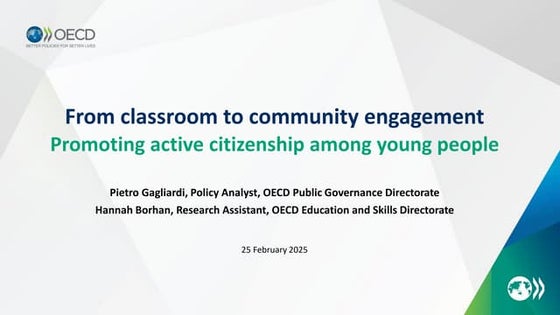



Hannah Borhan and Pietro Gagliardi OECD present 'From classroom to community ...EduSkills OECD
╠²
Hannah Borhan, Research Assistant, OECD Education and Skills Directorate and Pietro Gagliardi, Policy Analyst, OECD Public Governance Directorate present at the OECD webinar 'From classroom to community engagement: Promoting active citizenship among young people" on 25 February 2025. You can find the recording of the webinar on the website https://oecdedutoday.com/webinars/
Full-Stack .NET Developer Interview Questions PDF By ScholarHat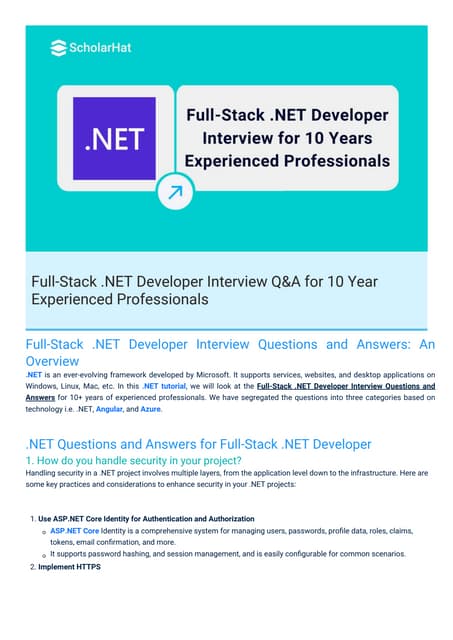



Full-Stack .NET Developer Interview Questions PDF By ScholarHatScholarhat
╠²
Full-Stack .NET Developer Interview Questions PDF By ScholarHatMastering Soft Tissue Therapy & Sports Taping



Mastering Soft Tissue Therapy & Sports TapingKusal Goonewardena
╠²
Mastering Soft Tissue Therapy & Sports Taping: Pathway to Sports Medicine Excellence
This presentation was delivered in Colombo, Sri Lanka, at the Institute of Sports Medicine to an audience of sports physiotherapists, exercise scientists, athletic trainers, and healthcare professionals. Led by Kusal Goonewardena (PhD Candidate - Muscle Fatigue, APA Titled Sports & Exercise Physiotherapist) and Gayath Jayasinghe (Sports Scientist), the session provided comprehensive training on soft tissue assessment, treatment techniques, and essential sports taping methods.
Key topics covered:
Ō£ģ Soft Tissue Therapy ŌĆō The science behind muscle, fascia, and joint assessment for optimal treatment outcomes.
Ō£ģ Sports Taping Techniques ŌĆō Practical applications for injury prevention and rehabilitation, including ankle, knee, shoulder, thoracic, and cervical spine taping.
Ō£ģ Sports Trainer Level 1 Course by Sports Medicine Australia ŌĆō A gateway to professional development, career opportunities, and working in Australia.
This training mirrors the Elite Akademy Sports Medicine standards, ensuring evidence-based approaches to injury management and athlete care.
If you are a sports professional looking to enhance your clinical skills and open doors to global opportunities, this presentation is for you.Entity Framework Interview Questions PDF By ScholarHat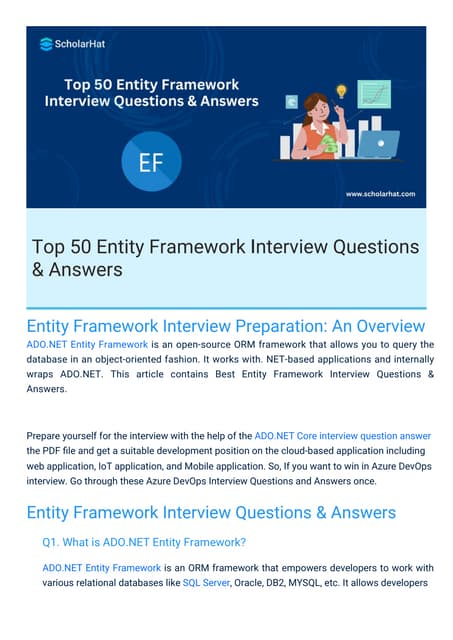



Entity Framework Interview Questions PDF By ScholarHatScholarhat
╠²
Entity Framework Interview Questions PDF By ScholarHatAzure Data Engineer Interview Questions By ScholarHat



Azure Data Engineer Interview Questions By ScholarHatScholarhat
╠²
Azure Data Engineer Interview Questions By ScholarHatDot NET Core Interview Questions PDF By ScholarHat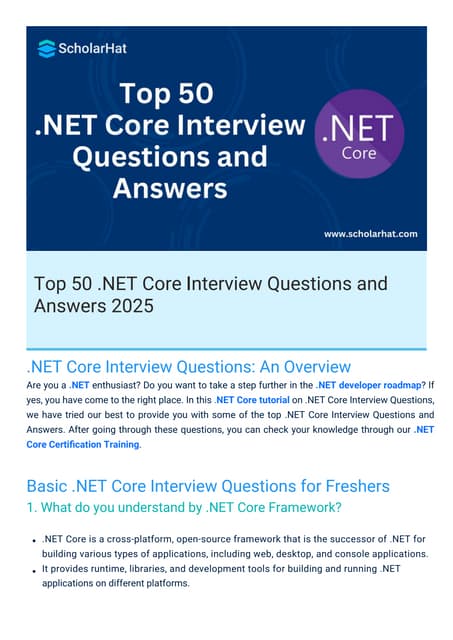



Dot NET Core Interview Questions PDF By ScholarHatScholarhat
╠²
Dot NET Core Interview Questions PDF By ScholarHatHow to Configure Proforma Invoice in Odoo 18 Sales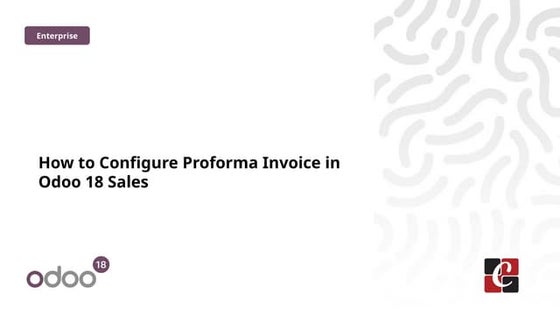



How to Configure Proforma Invoice in Odoo 18 SalesCeline George
╠²
In this slide, weŌĆÖll discuss on how to configure proforma invoice in Odoo 18 Sales module. A proforma invoice is a preliminary invoice that serves as a commercial document issued by a seller to a buyer.Chapter 2. Strategic Management: Corporate Governance.pdf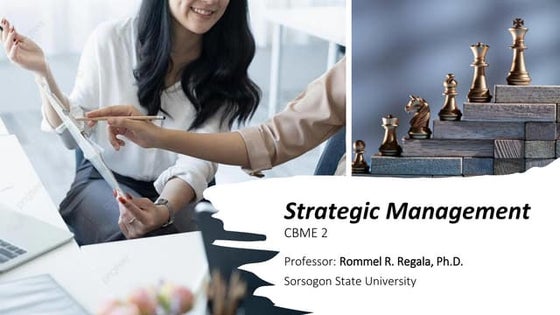



Chapter 2. Strategic Management: Corporate Governance.pdfRommel Regala
╠²
This course provides students with a comprehensive understanding of strategic management principles, frameworks, and applications in business. It explores strategic planning, environmental analysis, corporate governance, business ethics, and sustainability. The course integrates Sustainable Development Goals (SDGs) to enhance global and ethical perspectives in decision-making.AI and Academic Writing, Short Term Course in Academic Writing and Publicatio...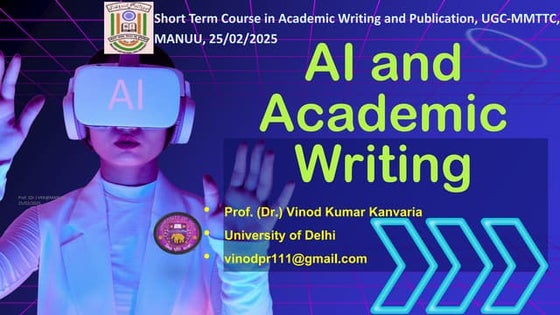



AI and Academic Writing, Short Term Course in Academic Writing and Publicatio...Prof. (Dr.) Vinod Kumar Kanvaria
╠²
AI and Academic Writing, Short Term Course in Academic Writing and Publication, UGC-MMTTC, MANUU, 25/02/2025, Prof. (Dr.) Vinod Kumar Kanvaria, University of Delhi, vinodpr111@gmail.comEffective Product Variant Management in Odoo 18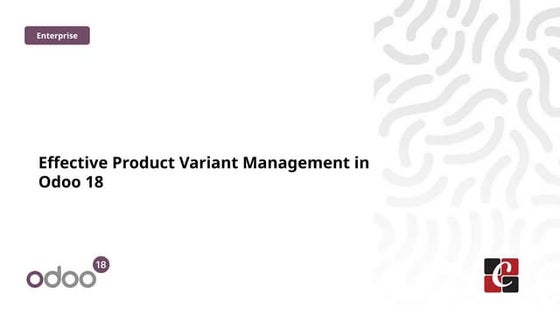



Effective Product Variant Management in Odoo 18Celine George
╠²
In this slide weŌĆÖll discuss on the effective product variant management in Odoo 18. Odoo concentrates on managing product variations and offers a distinct area for doing so. Product variants provide unique characteristics like size and color to single products, which can be managed at the product template level for all attributes and variants or at the variant level for individual variants.Meeting the needs of modern students?, Selina McCoy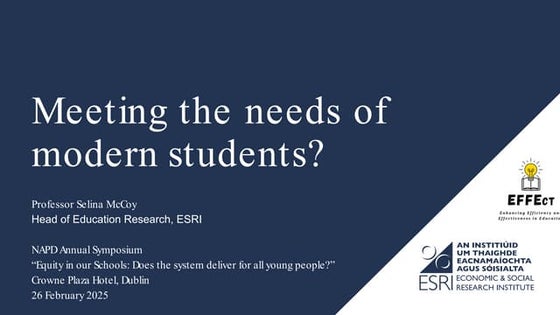



Meeting the needs of modern students?, Selina McCoyEconomic and Social Research Institute
╠²
NAPD Annual Symposium
ŌĆ£Equity in our Schools: Does the system deliver for all young people?ŌĆØOral exam Kenneth Bech - What is the meaning of strategic fit?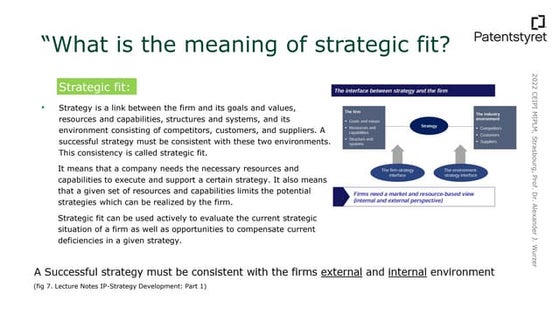



Oral exam Kenneth Bech - What is the meaning of strategic fit?MIPLM
╠²
Presentation of the CEIPI DU IPBA oral exam of Kenneth Bech - What is the meaning of strategic fit? Blind spots in AI and Formulation Science, IFPAC 2025.pdf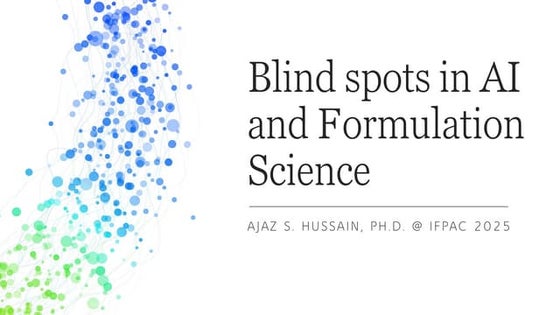



Blind spots in AI and Formulation Science, IFPAC 2025.pdfAjaz Hussain
╠²
The intersection of AI and pharmaceutical formulation science highlights significant blind spotsŌĆösystemic gaps in pharmaceutical development, regulatory oversight, quality assurance, and the ethical use of AIŌĆöthat could jeopardize patient safety and undermine public trust. To move forward effectively, we must address these normalized blind spots, which may arise from outdated assumptions, errors, gaps in previous knowledge, and biases in language or regulatory inertia. This is essential to ensure that AI and formulation science are developed as tools for patient-centered and ethical healthcare.Inventory Reporting in Odoo 17 - Odoo 17 Inventory App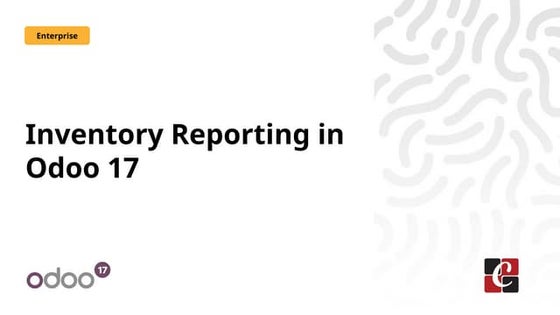



Inventory Reporting in Odoo 17 - Odoo 17 Inventory AppCeline George
╠²
This slide will helps us to efficiently create detailed reports of different records defined in its modules, both analytical and quantitative, with Odoo 17 ERP.Helping Autistic Girls Shine Webinar ║▌║▌▀Żs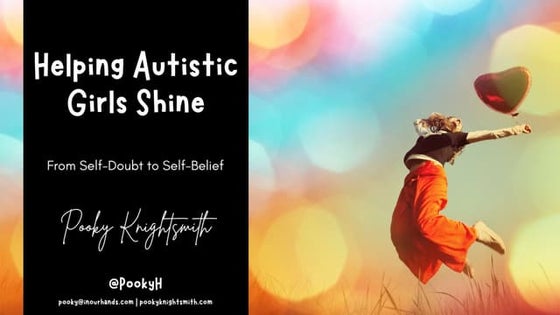



Helping Autistic Girls Shine Webinar ║▌║▌▀ŻsPooky Knightsmith
╠²
For more information about my speaking and training work, visit: https://www.pookyknightsmith.com/speaking/How to create security group category in Odoo 17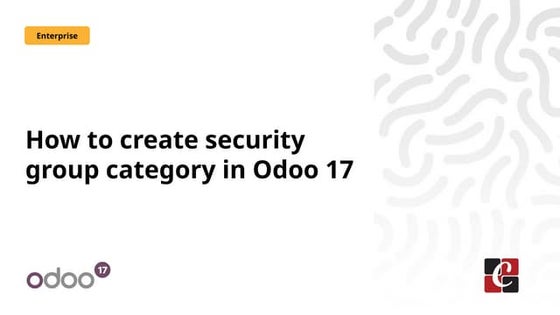



How to create security group category in Odoo 17Celine George
╠²
This slide will represent the creation of security group category in odoo 17. Security groups are essential for managing user access and permissions across different modules. Creating a security group category helps to organize related user groups and streamline permission settings within a specific module or functionality.Interim Guidelines for PMES-DM-17-2025-PPT.pptx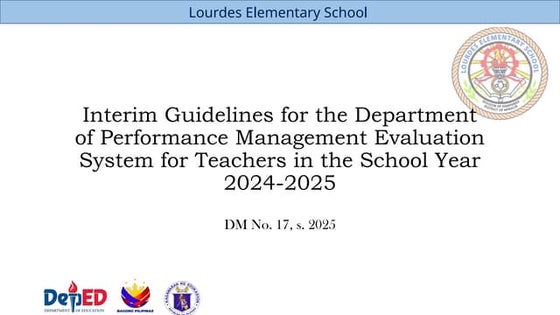



Interim Guidelines for PMES-DM-17-2025-PPT.pptxsirjeromemanansala
╠²
This is the latest issuance on PMES as replacement of RPMS. Kindly message me to gain full access of the presentation. AI and Academic Writing, Short Term Course in Academic Writing and Publicatio...



AI and Academic Writing, Short Term Course in Academic Writing and Publicatio...Prof. (Dr.) Vinod Kumar Kanvaria
╠²
Rorty and final vocabularies
- 1. Prespared by Dr. Martin Barlosky, Faculty of Education, University of OttawaConnecting from last timeŌĆ”PED 3102 in a nutshellŌĆ£Because schools have the potential to be much better places, for both teachers and students, we regard it as very important for everyone involved with education to understand the way in which our schools are organized and operated so that they can ask questions about, and propose changes to, current practices.ŌĆØ- Jon Young & Benjamin Levin, Understanding Canadian Schools, Reader p.10
- 2. Prespared by Dr. Martin Barlosky, Faculty of Education, University of OttawaFocaultŌĆÖs Epistemological ConundrumŌĆ£People know what they do; they frequently know why they do what they do; but what they donŌĆÖt know is what they do [their doing] does.ŌĆØ-Michel Foucault, Beyond Structuralism and Hermeneutics, Dreyfus & Rabinow (Eds.), p. 187
- 3. The point of critical understandingIn PED 3102 we continuously urge you to first surface and then examine your existing assumptions, beliefs, and values about schools and schooling so that you will not simply reproduce what now exists.Prepared by Dr. Martin Barlosky, Faculty of Education, University of Ottawa
- 4. Prepared by Dr. Martin Barlosky, Faculty of Education, University of OttawaCulture and Final VocabulariesŌĆ£[A]ll vocabularies, even those which contain the words which we take most seriously, the ones most essential to our self-descriptions ŌĆō are human creations, tools for the creation of such other human artifacts as poems, utopian societies, scientific theories, and future generations.ŌĆØ-Richard Rorty, Contingency, irony, and solidarity, p. 53
- 5. Prepared by Dr. Martin Barlosky, Faculty of Education, University of OttawaŌĆ£final vocabulariesŌĆØŌĆ£All human beings carry about a set of words which they employ to justify their actions, their beliefs, and their livesŌĆ”They are the words in which we tell, sometimes prospectively and sometimes retrospectively, the story of our lives. I shall call these words a personŌĆÖs ŌĆ£final vocabulary.ŌĆØ- Richard Rorty, Contingency, irony, and solidarity, p. 73
- 6. Prepared by Dr. Martin Barlosky, Faculty of Education, University of OttawaŌĆ£When we are talking about the order and structure of the world, we are talking about the order of our grids.ŌĆØ-Alan W. Watts, Psychotherapy East and WestGrids = Final Vocabularies
- 7. Seeing beyond our gridsLearning to problematize our final vocabularies through the cultivation of the ironic sensibility.Prepared by Dr. Martin Barlosky, Faculty of Education, University of Ottawa
- 8. Prepared by Dr. Martin Barlosky, Faculty of Education, University of OttawaŌĆ£I shall define an ŌĆśironistŌĆÖ as someone who fulfills three conditions:(1) She has radical and continuing doubts about the final vocabulary she currently uses, because she has been impressed by other vocabularies, vocabularies taken as final by people or books she has encountered;
- 9. Prepared by Dr. Martin Barlosky, Faculty of Education, University of Ottawa(2) She realizes that argument phrased in her present vocabulary can neither underwrite nor dissolve these doubts;
- 10. (3) Insofar as she philosophizes about her situation, she does not think that her vocabulary is closer to reality than others, that it is in touch with a power not herself. ŌĆ£ - Richard Rorty, Contingency, irony, and solidarity, p. 73-5Prepared by Dr. Martin Barlosky, Faculty of Education, University of Ottawa
- 11. Irony and AgencyŌĆ£[T]he fact that Newton's vocabulary lets us predict the world more easily than Aristotle's does not mean that the world speaks Newtonian. The world does not speak. Only we do.ŌĆØ-Richard Rorty, Contingency, irony, and solidarity, p. 6Prepared by Dr. Martin Barlosky, Faculty of Education, University of Ottawa
- 12. The Aim of Irony:Conversation Over CertaintyPrepared by Dr. Martin Barlosky, Faculty of Education, University of Ottawa
- 13. Michael Oakeshottfrom Rationalism in Politics and Other EssaysŌĆ£In conversation, ŌĆÖfactsŌĆÖ appear only to be resolved once more into the possibilities from which they were made; ŌĆścertaintiesŌĆÖ are shown to be combustible, not by being brought in contact with other ŌĆścertaintiesŌĆÖ or with doubts, but by being kindled by the presence of ideas of another order; approximations are revealed between notions normally remote from one another . . . Prepared by Dr. Martin Barlosky, Faculty of Education, University of Ottawa
- 14. Conversation & DiversityŌĆ£Conversation is not an enterprise designed to yield an extrinsic profit, a contest where a winner gets a prize, nor is it an activity of exegesis; it is an unrehearsed intellectual adventure . . . . Properly speaking, it is impossible in the absence of a diversity of voices: in it different universes of discourse meet, acknowledge each other and enjoy an oblique relationship which neither requires nor forecasts their being assimilated to one another.ŌĆØ (pp. 177-179; emphasis added)Prepared by Dr. Martin Barlosky, Faculty of Education, University of Ottawa
- 15. Knowledge and Community(neither narcissism nor subjugation)ŌĆ£[T]here is a middle way between reliance on a God-surrogate and on oneŌĆÖs individual preferences ŌĆō namely, reliance on the common sense of the community to which one belongs.ŌĆØ-Richard Rorty, ŌĆ£Hermeneutics, General Studies, and Teaching,ŌĆØ p. 527Prepared by Dr. Martin Barlosky, Faculty of Education, University of Ottawa
- 16. ŌĆ£[It] does not greatly matter what the core curriculum is as long as there is one ŌĆō as long as each community defines itself by adopting oneŌĆ”What matters is that there be some things they all have read and can do, some common subject of conversationŌĆ”To pick a core curriculum is, therefore, to pick a community ŌĆō or, better, to decide what sort of community one would like to see come into being.ŌĆØ-Rorty, ŌĆ£Hermeneutics, General Studies, and Teaching,ŌĆØ pp. 527 & 532-3Prepared by Dr. Martin Barlosky, Faculty of Education, University of Ottawa
- 17. Three Questions:Prepared by Dr. Martin Barlosky, Faculty of Education, University of Ottawa1. What are the implications of RortyŌĆÖsvalorization of curriculum as a conversation disciplined and enriched by community?2. If we take Rorty seriously, what would change in our current schooling practices? What might remain the same? Why?3. How might our approaches to knowing self, other, and world change?


